Abraham Lincoln Blu-ray Movie
HomeAbraham Lincoln Blu-ray Movie 
Kino Lorber | 1930 | 93 min | Not rated | Nov 13, 2012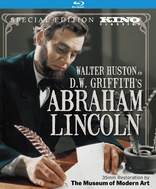
Price
List price:Amazon: $17.49 (Save 6%)
Third party: $17.49 (Save 6%)
Usually ships within 1 to 2 months
Movie rating
6.4 | / 10 |
Blu-ray rating
| Users | 0.0 | |
| Reviewer | 3.0 | |
| Overall | 3.0 |
Overview
Abraham Lincoln (1930)
Focusing on the president's great achievements and personal tragedies, D.W. Griffith's biopic of Abraham Lincoln depicts the American icon with sensitivity and grace.
Starring: Walter Huston, Una Merkel, William L. Thorne, Kay Hammond (II), Lucille La VerneDirector: D.W. Griffith
| Drama | Uncertain |
| History | Uncertain |
| Biography | Uncertain |
Specifications
Video
Video codec: MPEG-4 AVC
Video resolution: 1080p
Aspect ratio: 1.16:1
Original aspect ratio: 1.2:1
Audio
English: LPCM 2.0
Subtitles
None
Discs
25GB Blu-ray Disc
Single disc (1 BD)
Playback
Region A (B, C untested)
Review
Rating summary
| Movie | 3.0 | |
| Video | 3.5 | |
| Audio | 3.0 | |
| Extras | 1.0 | |
| Overall | 3.0 |
Abraham Lincoln Blu-ray Movie Review
D.W. Griffith's take on old Honest Abe.
Reviewed by Casey Broadwater November 18, 2012With Steven Spielberg's Lincoln in theaters and all this absurd post-election claptrap about secession, now seems an appropriate time for Kino
Classics to release D.W. Griffith's 1930 talkie, Abraham Lincoln, the earliest major biopic of the lanky, bearded emancipator. Griffith had briefly
treated the president's assassination in his influential and divisive 1915 antebellum epic, The Birth of a Nation—a monumental advance in
filmmaking marred by its outright racism—and fifteen years later he would return for a more comprehensive look at Honest Abe, using a script co-
written by Stephen Vincent Benét, the then-recent recipient of a Pulitzer Prize for his book-length American narrative poem, John Brown's
Body.
Honorific to the extent of being worshipful—perhaps in Griffith's ongoing effort to distance himself from Birth of a Nation's outdated attitudes—
the film also seems somewhat wooden and perfunctory now, partially because it blazes through the entirety of Lincoln's life, sacrificing depth for
breadth. Future filmmakers would learn it's easier and more effective to deal with Lincoln's biography in chunks. John Ford's Young Mr. Lincoln
(1939) and John Cromwell's Abe Lincoln in Illinois (1940) both deal with the pre-presidential years, while Spielberg's new film confines itself to
Lincoln's final months. Griffith, however, takes us all the way from birth to death in what amounts to a series of historical vignettes.
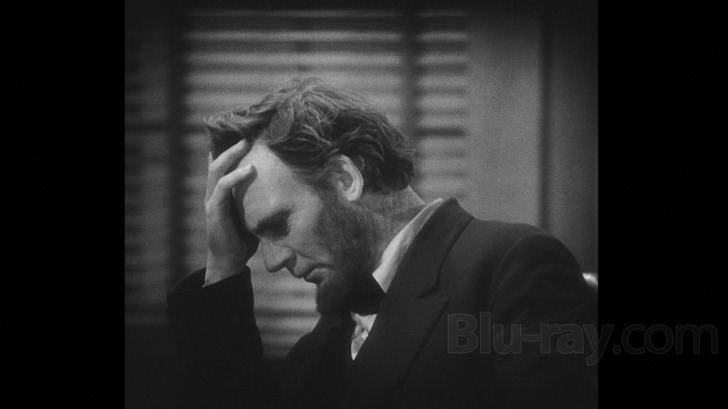
A prologue sets the national stage, showing southerners kvetching about the North, northerners practically bidding good riddance to the South, and the horrific conditions onboard a crowded slave ship. After Lincoln's 1809 birth in a humble one-room log cabin, the film goes immediately to New Salem, Illinois, where the twenty-something Mr. Lincoln (Walter Huston) proves his physical prowess—lifting a keg to "drink straight from the bung," winning a wrestling match, splitting beams—and woos his alleged first love, Ann Rutledge (an overacting Una Merkel). This first act is the film's best, showing Lincoln as a good-natured horndog, as eager to make out with his sweetheart as he is to study law.
When Ann contracts typhoid and dies, there's a wonderfully moody and gorgeously shot scene where the romantically tortured Lincoln—like a marginally less dramatic Heathcliff from Wuthering Heights—lies down on top of her grave to shield it from a rain storm. His grief here is short- lived, though. The film wastes no time setting him up with his future wife, the demanding and possibly bipolar Mary Todd (Kay Hammond), and similarly blows through Lincoln's early political career, including a ridiculously abridged portrayal of the famed Lincoln/Douglas debates and Lincoln's subsequently lost Senate race. Before we know it, Abe's beard has grown in and he's moving into the White House.
A streamlined account of the Civil War consumes the film's long middle section, featuring Hobart Bosworth as General Robert E. Lee and E. Alyn Warren as General Grant. Griffith shies away from grand battle sequences, however—we see only encampments and a few large-scale troop movements—preferring instead to keep the focus on Lincoln's psychological state. Walter Huston's emotionally diverse portrayal is the highlight of an otherwise staid film. In moments of levity, he's a knee-slapping, storytelling good old boy. Faced with troop casualty numbers, he's deeply sorrowed to see that it's all come to this. And more than anything, he's a wise, forgiving messiah figure, pardoning cowardly soldiers, suggesting to an aide that they let Confederate President Jefferson Davis escape, and allowing southern troops to keep their horses, knowing they'll need them for the following year's planting.
Of all U.S. leaders, Lincoln has been the most beatified and mythologized, and Griffith's biopic certainly plays into the idea of the archetypal Honest Abe, a near-biblical figure who seemingly single-handedly freed the slaves and united a nation. This isn't whitewashing, per se, but—like most everything about the film—it is an oversimplification of the political and biographical facts. Still, given how comparatively young America is, and how short on legend, there's definitely something to be said for the "tall-tale" pop-cultural perception of the 16th president. What's odd here, though, is that Lincoln's Gettysburg Address—probably his most iconic, myth-making moment as president—isn't covered in the film, for reasons unknown. Instead, a few of its famous phrases are amalgamated into an impromptu speech Lincoln gives at Ford's Theatre, shortly before the angry John Wilkes Booth (Ian Keith) sneaks into his box and fires the fateful shot.
By 1930, D.W. Griffith was known as "the old master," and his Abraham Lincoln was conventional and arguably old-fashioned even for its time, from its Victorian-ish melodramatic narrative to its mostly static visual style. (Although Griffith does get a few impressive tracking shots in early in the story.) If well-made, the film is pointedly straightforward, and would probably be unremarkable if it weren't for Huston's performance and the fact that it was the once-pioneering Griffith's second-to-last directing gig.
Abraham Lincoln Blu-ray Movie, Video Quality 
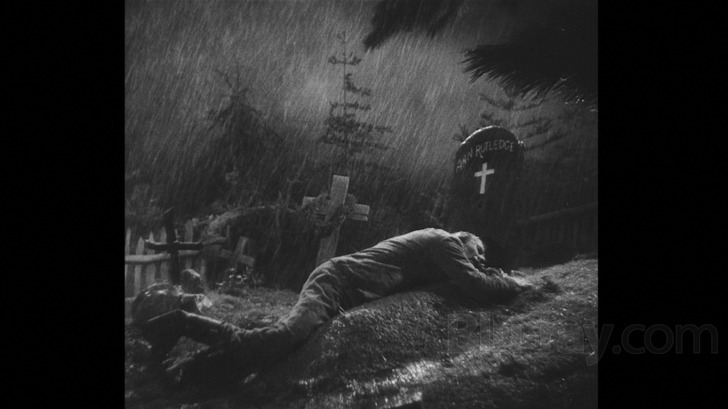
Abraham Lincoln strides lankily onto Blu-ray with a 1080p/AVC-encoded transfer sourced from a recent 35mm restoration by the Museum of Modern Art. Unlike many public domain editions, this version is very nearly complete—containing 93 minutes of a 97 minute original runtime— and for its age, the print is in good-to-great condition. There are the usual concerns—specks and small scratches, slight brightness fluctuations—but no major stains, tearing, or warpage. Like most Kino Classics titles, the film is essentially presented "as is," with no significant digital clean up. However, this also means there's no heavy, smeary noise reduction or halo-causing edge enhancement. It's a very pure look, with a natural, visible grain structure, and I didn't spot any overt signs of compression. Of course, simply by merit of being transferred in high definition, the film looks drastically better than previous versions, with tighter textures, stronger detail, and an all-around sense of I'm looking at a film print, not a sized-down digital facsimile refinement. The film's monochromatic gradient is handled well too; blacks are sufficiently deep without endangering shadow detail, and whites are crisp without being overblown. A pleasure to watch in motion.
Abraham Lincoln Blu-ray Movie, Audio Quality 
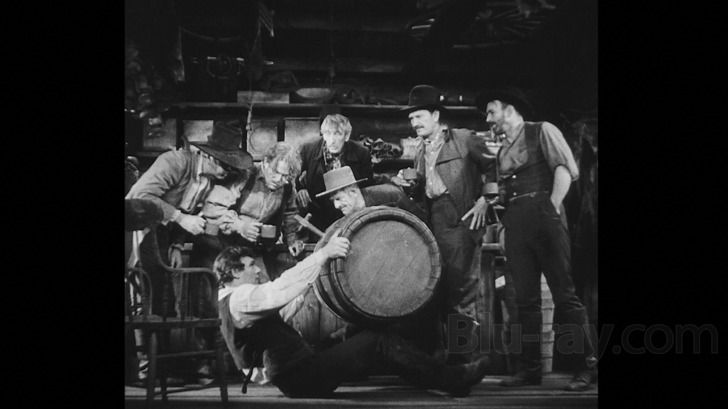
The film has been given an uncompressed Linear PCM 2.0 track that does what it can with the existing audio elements. A disclaimer before the film begins warns, "Portions of the soundtrack of the first three reels have not survived. During these sequences, dialogue and music cues are provided by subtitles." And yes, for the first twenty minutes or so of the film, there's a patchy mixture of normal sound and dead silence. Unfortunately, barring the discovery of some new print with the audio wholly intact, this is simply the state of affairs. That said, Kino's English subtitles for these sections are quite complete, although—it should be noted—there are no subtitle options whatsoever for the rest of the film. Once we get past the third reel, the sound mix is complete, but not without issues. Crackle and hiss are present to varying degrees most of the time and don't seem to have been digitally attenuated at all. Not unexpectedly, the track can also feel thin and brittle at times, with slight peaking in the high end. If you watch a lot of older films, you're probably used to this, though, and none of the problems rise to the level of a persistent distraction. Dialogue, most importantly, is always easy to understand.
Abraham Lincoln Blu-ray Movie, Special Features and Extras 
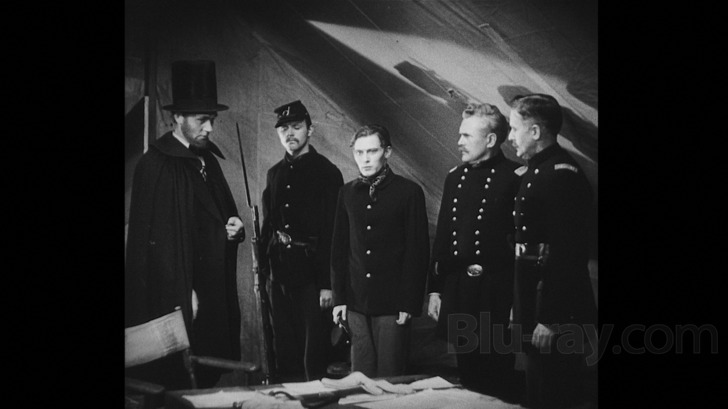
The only bonus features on the disc are two short staged interviews between Griffith and Huston that were filmed during the making of Abraham Lincoln and intended to be shown in conjunction with the 1930 re-release of Birth of a Nation. The director fields questions from his leading man, mostly discussing what he remembers from the South of his childhood. In high definition, running 5:57 and 1:53.
Abraham Lincoln Blu-ray Movie, Overall Score and Recommendation 
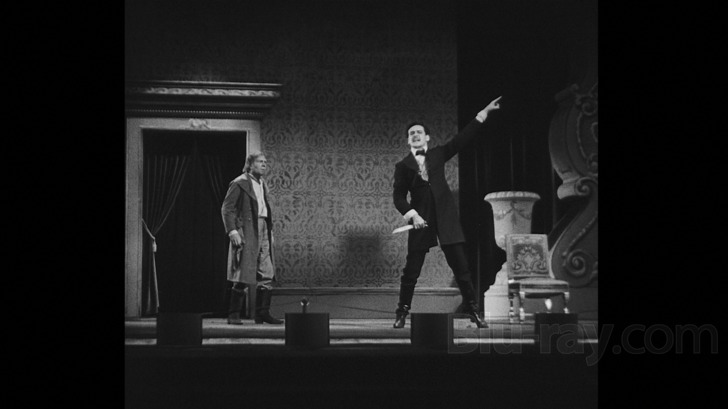
Four score and two years ago, D.W. Griffith brought forth to audiences a new film, conceived in Hollywood, and dedicated to the proposition that Abraham Lincoln was a damn fine president. That film, 1930's Abraham Lincoln, seems fusty and too straightforward now—it was old-fashioned even in its own day—but it features a charming, occasionally moving performance by Walter Huston in the title role, and it has some historical value as the pioneering Griffith's penultimate film. With a new 35mm restoration by the Museum of Modern Art, Kino Classics has brought the movie to Blu-ray in far better shape than it has ever looked on home video. If you're a fan of early cinema, a Griffith apologist, or a Lincoln/Civil War buff, it's probably worth checking out—just don't expect a masterpiece.
Similar titles
Similar titles you might also like

Jackie
2016

Abe Lincoln in Illinois
Warner Archive Collection
1940

The Kennedys
2011

Young Mr. Lincoln
1939

Nixon
Election Year Edition
1995

Milk
2008

Nicholas and Alexandra
Limited Edition to 3000 - SOLD OUT
1971

J. Edgar
2011

Selma
2014

Walker
1987

The Fifth Estate
2013

The Birth of a Nation
Limited Edition to 3000
1915

Lee Daniels' The Butler
2013

Rebel in the Rye
2017

There Be Dragons
2011

A Man for All Seasons
1966

12 Years a Slave
2013

The Last Station
2009

Becket
1964

The King's Speech
2010